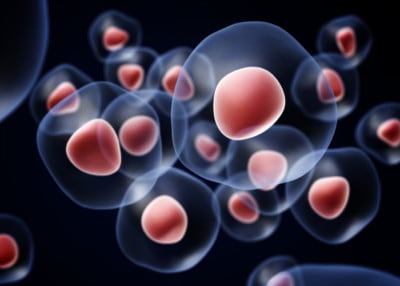What (who) is Regenerelle™
Regenerelle is the name of a company, founded in 2020, who conceptualized and launched a suite of Wharton’s jelly products. They developed an extensive product pipeline across a range of clinical applications, and established a portfolio of intellectual property. Regenerelle™ portfolio of products includes, WJ-MSCs, EVs and growth media.
Regenerelle’s™ standard of excellence:
Regenerelle™ stem cells and exosomes are the gold standard of UC-MSCs (umbilical cord – Mesenchymal Cells). Patients can expect the highest potency and purity, with stringent GMP FDA quality testing at every step of the process of isolation, expansion, harvest and cryostorage with this lab. At Optimal, we have moved to Rengenerelle’s products including Wharton’s Jelly.
What is Wharton’s Jelly?
Wharton’s Jelly, named after the English physician Thomas Wharton, who first described it in 1656, is an umbilical cord blood-derived tissue allograft, containing stem cells and growth factors. It is a gelatinous substance (thus the name “jelly”) and is classified as a connective tissue. The job of this jelly-like substance is to provide insulation and protection within the umbilical cord. Once considered postnatal waste, Wharton’s Jelly contains some of the highest levels of mesenchymal stem cells in the human anatomy and has been studied by researchers, scientists, and doctors.

How is Wharton’s Jelly obtained? How do you get Wharton’s Jelly?
Wharton’s Jelly is obtained using FDA approved processing of donor cord blood from live-birth C-sections. No aborted fetal tissue is ever allowed to be used. Mothers can elect to cryopreserve their baby’s cord blood to use for the child later or they may elect to donate the cord blood. All donor moms are prescreened for all infections and the cord blood tissue is then processed and again screened for any type of infections/ diseases and the cells/ tissue are also cultured to make sure there is no chance of infection. The tissue cells are super-frozen after processing and then shipped in dry ice to be thawed out just prior to use.
What is the risk of rejection when using Wharton’s Jelly?
Stem cells are immune naïve and do not contain histocompatibility antigens, so there is no significant risk of transfusion type reactions or tissue rejection from this type of donor tissue/ cells. Wharton’s Jelly may be used alone or can be injected along with the patient’s own PRP (platelet Rich Plasma)- which will be determined by your physician depending on the condition being treated.
What can be treated with Wharton’s Jelly?
The specialists at Optimal Pain & Regenerative Medicine® have had marked success treating many different painful conditions with Wharton’s Jelly.
- Inflammation
- Musculoskeletal Injuries
- Degenerative Conditions
- Pain from Osteoporosis
- Disc Disorders
- Joint Injuries and Pain
Need more information on Wharton’s Jelly or on other regenerative medicine therapies available? Would you like to know if you are a candidate for receiving Wharton’s Jelly? Please contact please contact the offices of Optimal Pain & Regenerative Medicine® serving Dallas, Fort Worth and Arlington, Texas area.